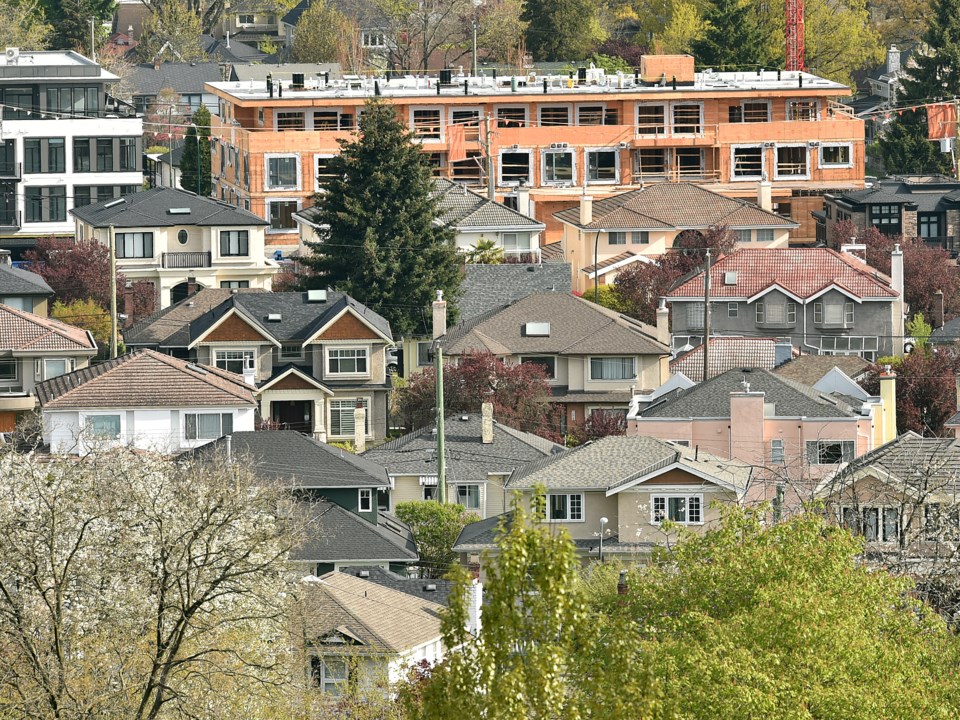City of Vancouver council approved, at a November 26 council meeting that ran well into the evening, a host of measures aimed at improving Vancouver’s rental housing market.
They include rental-only zoning, allowing up to six storeys in commercial zones not already covered by community plans, a new housing pilot program to permit four to six-storey buildings close to schools, parks and shops, policies designed to address affordability, and a partnership with CleanBC to enable renovations to existing rental buildings while keeping tenants in place.
Council voted in favour of the measures after listening to a parade of speakers who spoke for and against recommendations outlined in a 236-page staff report, which stemmed from a review of the city’s rental incentive programs.
Speakers included Vancouver residents, representatives from the Urban Development Institute, several developers, LandlordBC and non-profit housing developers.
Few purpose-built rental apartments were built between 1980 and 2009. Although 8,700 rental housing units were produced over the past decade, the city still isn’t meeting its targets. Citywide, the vacancy rate sits at close to zero — it's at 0.8 per cent.
The City of Vancouver launched several rental incentive programs in recent years to encourage rental development, including STIR (Short-term Incentives for Rentals), Rental 100, and the Affordable Housing Choices Interim Rezoning Policy.
Most recently, the city initiated the Moderate Income Rental Housing Pilot Program.
The programs enabled developers to qualify for incentives such as increases to height and density, parking relaxations and development cost levy waivers.
Critics argued the programs aren’t creating units with rents that are affordable to average Vancouverites.
But studies from independent consultants hired by the city as part of the review concluded incentive programs were “absolutely necessary” to create new rental housing, they’ve already produced hundreds of units, and more incentives were likely needed to bolster supply.
Measures approved by council
Measures approved Tuesday were voted on as separate clauses in a larger overall motion.
Rental-only zoning will allow six-storey rental buildings in commercial zones not already covered by community plans. Rental projects in these areas won’t need to go through a rezoning process.
These commercial districts have also been added to the Rental Stock Official Development Plan, which is designed to protect existing rental housing units.
Rental-only zoning will be used as part of a pilot in areas 150 metres off main arterial roads near schools, parks and shops. Projects will still have to go through rezoning but will use a standardized template for buildings, which the city expects will cut six months off process times.
The program that will enable renovations of existing rental buildings is a partnership between the provincial CleanBC program, LandlordBC and the city. It aims to support major high-cost structural and green building upgrades, while keeping tenants in place. Council approved a $1.5 million grant to LandlordBC to implement the pilot, which will also get a $1.5 million matching grant from CleanBC.
Council will also continue on with its Moderate Income Rental Housing Pilot Program (MIRHPP), which is geared toward creating some units affordable to households earning between $30,000 and $80,000. The city is allowing 20 projects under the pilot. The timeline for consideration of the projects has been extended until January 2021.
Public hearings for the first three projects under the MIRHPP take place in December.
In a Nov. 27 press release, Mayor Kennedy Stewart praised all the approved measures.
“Vancouver residents told us loud and clear to take action on the housing crisis so that's exactly what we've done,” Stewart said. “Together, these policies could help build upwards of 8,000 new rental homes over the next seven years, including nearly 5,000 homes geared to middle-income households, helping more of our friends and neighbours stay in Vancouver.”
Most, but not all, councillors were on board with the majority of the measures.
OneCity Coun. Christine Boyle said she was “excited” to support the report in full as housing and climate pieces were “woven together,” and it will create more rental homes across Vancouver.
“Rental housing is residential housing. It belongs in all of our neighbourhoods, so I’m excited about the low-density transition zones,” she said before voting on the measures. “I would have been happy to see them be twice as big as they’re being proposed but I know [those] will be conversations we have in the city-wide plan, so I will wait to have that there. But I think one block off our arterials is the way we need to go so renters also don’t have to live on our busiest streets.”
NPA Coun. Sarah Kirby-Yung said she liked that the report attempted to create more equity between housing types.
“I don’t think renters should be less than homeowners,” she said.
NPA Coun. Colleen Hardwick argued that opportunities for increasing rental housing should be dealt with through the city-wide plan.
She said there was not enough time, notice or public consultation given to consider the 236-page report, and that the current council was elected to do things differently than the previous council.
Hardwick added that she was concerned the measures would undermine the city-wide plan, that they fail to address the needs of people already here, that there’s a bias towards new construction, and that the incentives will put existing rentals and character homes at risk.



